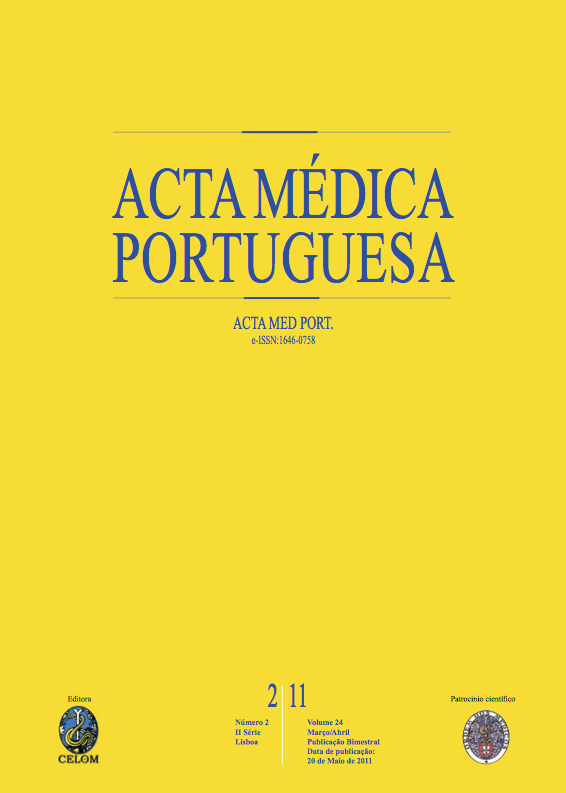Maternal coffee intake and associated risk factors: effects on fetal growth and activity.
DOI:
https://doi.org/10.20344/amp.1626Resumo
Empirical studies have shown that fetal growth and activity can be affected by several risk factors, such as maternal anxiety, depression and tobacco or alcohol consumption. Caffeine intake has received less attention in the literature, as well as the analysis of the mutual interplay of the range of such risk factors. This study aimed to examine effects of mother's coffee intake and associated risk factors during early pregnancy on fetal growth and activity. The sample involved 47 fetuses (51.1% male and 48.9% female) with gestational ages between 20-22 weeks whose mothers were recruited in a Portuguese antenatal obstetric unit. Repeated measures of mother's anxiety (STAI-S) and depression (EPDS) and information about socio-demographics and substances consumption were collected during the first and second trimesters of pregnancy. Fetal activity and biometry were measured during the 2(nd) trimester ultrasound. Results showed that 1) 23.4% of the pregnant women (N = 11) had regular coffee intake; 2) no significant differences were found neither on fetal growth nor on fetal movements considering mother's coffee intake; 3) when mother's socio-demographics and substances consumption were considered, tobacco consumption and anxiety at the 2(nd) trimester appeared as significant predictors of fetal growth and mother's coffee intake and anxiety symptoms at the 2(nd) trimester emerged as significant predictors of fetal movements. An adverse impact of maternal coffee intake during pregnancy was found on fetal activity but not on fetal growth. A deeper understanding of the multiple pathways by which these risk factors affect fetal growth and activity is needed.Downloads
Downloads
Como Citar
Edição
Secção
Licença
Todos os artigos publicados na AMP são de acesso aberto e cumprem os requisitos das agências de financiamento ou instituições académicas. Relativamente à utilização por terceiros a AMP rege-se pelos termos da licença Creative Commons ‘Atribuição – Uso Não-Comercial – (CC-BY-NC)’.
É da responsabilidade do autor obter permissão para reproduzir figuras, tabelas, etc., de outras publicações. Após a aceitação de um artigo, os autores serão convidados a preencher uma “Declaração de Responsabilidade Autoral e Partilha de Direitos de Autor “(http://www.actamedicaportuguesa.com/info/AMP-NormasPublicacao.pdf) e a “Declaração de Potenciais Conflitos de Interesse” (http://www.icmje.org/conflicts-of-interest) do ICMJE. Será enviado um e-mail ao autor correspondente, confirmando a receção do manuscrito.
Após a publicação, os autores ficam autorizados a disponibilizar os seus artigos em repositórios das suas instituições de origem, desde que mencionem sempre onde foram publicados e de acordo com a licença Creative Commons









